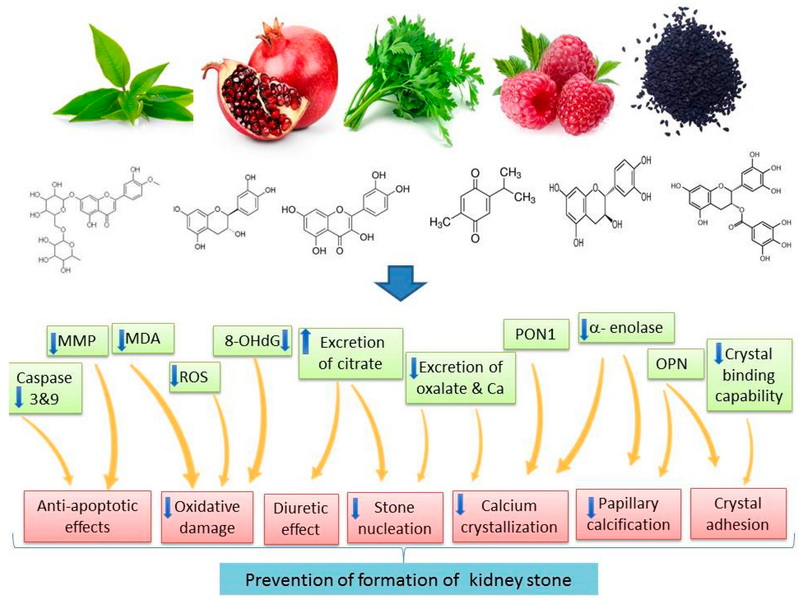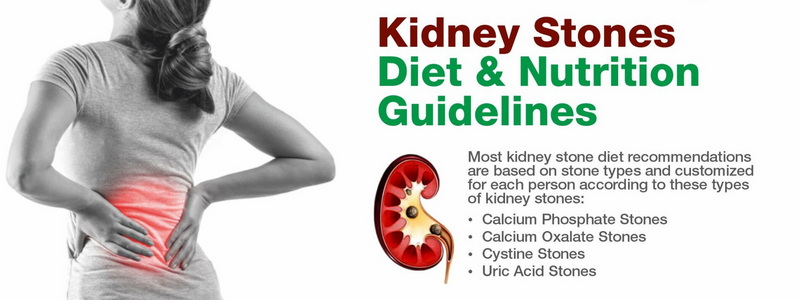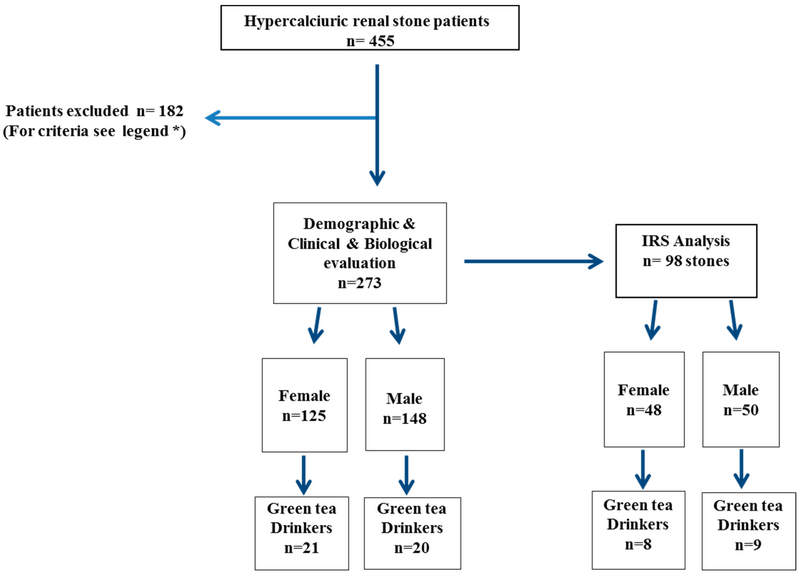Content Menu
● Understanding Kidney Stones
>> Symptoms of Kidney Stones
● The Role of Green Tea in Kidney Health
>> How Green Tea Affects Kidney Stones
● Studies Supporting Green Tea's Protective Effects
● Potential Risks Associated with Excessive Consumption
● The Science Behind Green Tea's Benefits
>> 1. Catechins and Antioxidant Properties
>> 2. Impact on Calcium Oxalate Crystallization
>> 3. Hydration and Urinary Health
● Cultural Perspectives on Green Tea Consumption
● Expert Recommendations for Green Tea Consumption
● Conclusion
● FAQ
>> 1. Is green tea good for kidneys?
>> 2. Can drinking too much green tea cause kidney stones?
>> 3. What type of tea is best for preventing kidney stones?
>> 4. How does green tea affect calcium oxalate crystals?
>> 5. Should I avoid all types of tea if I have had kidney stones?
● Citations:
Green tea has long been celebrated for its health benefits, including its potential role in preventing kidney stones. However, the relationship between green tea extract and kidney stones is complex, involving both beneficial and potentially harmful aspects. This article delves into the science behind green tea, its compounds, and their effects on kidney stone formation.

Understanding Kidney Stones
Kidney stones are hard deposits made of minerals and salts that form inside the kidneys. They can affect any part of the urinary tract and are often caused by a combination of factors, including dehydration, diet, obesity, and certain medical conditions. The most common type of kidney stone is calcium oxalate, which forms when calcium combines with oxalate in the urine.
Symptoms of Kidney Stones
- Severe pain in the back or side
- Blood in urine
- Nausea and vomiting
- Frequent urination
- Pain during urination
The Role of Green Tea in Kidney Health
Green tea is derived from the leaves of the *Camellia sinensis* plant and is rich in antioxidants known as catechins. One specific catechin, epigallocatechin gallate (EGCG), has been studied for its potential health benefits, including its effects on kidney health.
How Green Tea Affects Kidney Stones
Research indicates that green tea may actually help prevent kidney stones rather than cause them. Here's how:
- Oxalate Content: While many teas contain oxalates, which can contribute to stone formation, green tea has a lower concentration compared to black tea. Studies suggest that moderate consumption of green tea does not significantly increase urinary oxalate levels.
- Alteration of Crystal Formation: Compounds in green tea can bond with calcium oxalate crystals, altering their shape. This results in flatter crystals that are less likely to clump together and form larger stones.
- Diuretic Effect: The caffeine present in green tea acts as a mild diuretic, which can promote increased urine production. This may help flush out small stones before they can grow larger.
Studies Supporting Green Tea's Protective Effects
Several studies have explored the relationship between green tea consumption and kidney stone risk:
1. Epidemiological Studies: Research involving large cohorts has shown that individuals who consume green tea regularly have a lower risk of developing kidney stones compared to non-drinkers.
2. Animal Studies: In controlled experiments with rats, those given green tea showed a significant reduction in calcium oxalate crystal formation compared to those not given green tea.
3. Human Trials: Clinical trials have indicated that daily consumption of green tea can lead to changes in urinary composition that are less conducive to stone formation.
Potential Risks Associated with Excessive Consumption
While moderate consumption of green tea is generally considered safe and beneficial for kidney health, excessive intake may pose risks:
- High Concentration Supplements: Concentrated green tea extracts or supplements may contain high levels of catechins that could potentially harm the liver or kidneys if consumed in large amounts.
- Individual Sensitivities: Some individuals may have sensitivities to caffeine or other compounds in green tea, leading to adverse effects such as increased heart rate or digestive issues.

The Science Behind Green Tea's Benefits
1. Catechins and Antioxidant Properties
Green tea's primary active compounds are catechins, particularly EGCG. These compounds possess strong antioxidant properties that help reduce oxidative stress within the kidneys. Oxidative stress is linked to various kidney diseases, including chronic kidney disease (CKD). By mitigating oxidative damage, EGCG may play a protective role against kidney dysfunction.
2. Impact on Calcium Oxalate Crystallization
Studies have shown that EGCG can inhibit the crystallization process of calcium oxalate in vitro and in vivo. For example, a study demonstrated that rats fed a diet supplemented with EGCG exhibited reduced formation of calcium oxalate crystals compared to those on a standard diet[8]. This suggests that regular consumption of green tea could help lower the risk of stone formation by altering crystal morphology and reducing their aggregation.
3. Hydration and Urinary Health
Increased fluid intake is essential for preventing kidney stones. Drinking green tea contributes to overall hydration levels while providing beneficial compounds that support urinary health. The diuretic effect of caffeine can also enhance urine output, further aiding in the prevention of stone formation by diluting potential stone-forming substances within the urine[1][4].
Cultural Perspectives on Green Tea Consumption
In many cultures, particularly in Asia, green tea is consumed daily as part of traditional diets. Its perceived health benefits have led to increased popularity worldwide. In countries like Japan and China, where green tea consumption is high, studies have shown a corresponding decrease in kidney stone prevalence among regular drinkers[2][4]. This cultural acceptance supports the notion that moderate consumption may be beneficial for renal health.
Expert Recommendations for Green Tea Consumption
To enjoy the health benefits of green tea while minimizing risks to your kidneys:
- Limit intake to 2-3 cups per day.
- Choose high-quality loose-leaf or bagged teas over concentrated extracts.
- Stay hydrated with water alongside your tea consumption.
- Consult healthcare providers if you have pre-existing conditions such as chronic kidney disease or hypertension.
Conclusion
In conclusion, moderate consumption of green tea appears to be beneficial for kidney health and may help prevent the formation of kidney stones. The key lies in understanding individual tolerance levels and avoiding excessive intake of concentrated extracts. As always, individuals with pre-existing kidney conditions should consult healthcare professionals before making significant dietary changes.

FAQ
1. Is green tea good for kidneys?
Yes, moderate consumption of green tea may help prevent kidney stones due to its lower oxalate content and beneficial compounds.
2. Can drinking too much green tea cause kidney stones?
Excessive intake of concentrated green tea extracts may pose risks; however, moderate consumption is generally safe.
3. What type of tea is best for preventing kidney stones?
Green tea is recommended due to its lower oxalate content compared to black tea.
4. How does green tea affect calcium oxalate crystals?
Green tea can alter the shape of calcium oxalate crystals, making them flatter and less likely to form large stones.
5. Should I avoid all types of tea if I have had kidney stones?
Not necessarily; while some teas are high in oxalates (like black tea), moderate consumption of low-oxalate teas like green tea may be beneficial.
Citations:
[1] https://my.klarity.health/green-tea-and-kidney-stones/
[2] https://www.frontiersin.org/journals/nutrition/articles/10.3389/fnut.2022.1014491/full
[3] https://pubs.acs.org/doi/10.1021/acsomega.0c05903
[4] https://pmc.ncbi.nlm.nih.gov/articles/PMC8065818/
[5] https://www.youtube.com/watch?v=kb2wbPwqM_Q
[6] https://dreamofjapan.com/blogs/japanese-tea-stories/is-green-tea-bad-for-your-kidneys
[7] https://pmc.ncbi.nlm.nih.gov/articles/PMC6412450/
[8] https://pubmed.ncbi.nlm.nih.gov/16724910/
[9] https://www.researchgate.net/publication/344319897_Green_tea_potential_for_prevention_and_management_of_kidney_stones
[10] https://www.youtube.com/watch?v=t4Gcrc9lMog






























